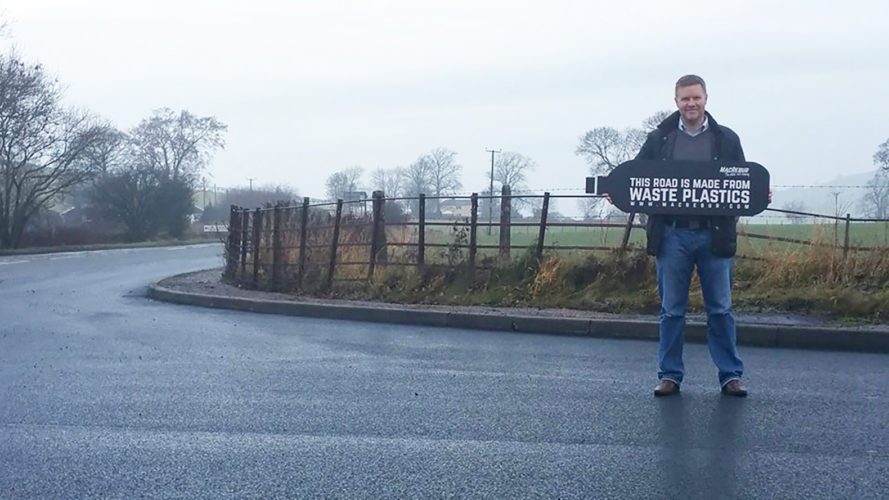The UK is currently testing cheaper, longer-lasting roads made using recycled plastic waste.
More durable than asphalt and more environmentally-friendly
Up to 60% stronger than regular asphalt roads
Approximately 24.8 million miles (39.9 million km) of roads crisscross the surface of Earth. Hundreds of millions of barrels of oil have been used for that development. Engineer Toby McCartney came up with a solution to that waste of natural resources and the growing plastic pollution problem. His company, Scotland-based MacRebur lays roads that are as much as 60 percent stronger than regular asphalt roads and last around 10 times longer – and they’re made with recycled plastic.
Our city roads require a lot of maintenance over time as weather deteriorates them and potholes open up. Meanwhile there are around five trillion pieces of plastic in the ocean. McCartney came up with an answer to both issues. He turns 100 percent recycled plastic into what he calls MR6 pellets, or small pellets of waste plastic, which replace bitumen, the material used to bind roads together (extracted from crude oil) and sold by oil companies like Shell.
Source: Inhabitiat

The origin of the idea…
The idea was born when MacRebur CEO, Toby McCartney, was working in Southern India with a charity helping people who work on landfill sites as ‘pickers’. Their job is to gather potentially reusable items and sell them on to be turned from rubbish into something useful again.
Some of the waste plastics retrieved by the pickers were put into potholes, petrol poured all over them, and the rubbish set alight until the plastics melted into the craters to form a makeshift plastic pothole filler.
Toby thought that our councils might ‘frown upon this’ the UK! So, he got together with two friends, Nick and Gordon, and formed MacRebur. They came up with our innovative idea to take a mix of waste plastics, pelletise them and add them into the making of an enhanced asphalt road.
After 18 months of testing and trials, MacRebur had their product ‘MR6’: It is within British and European standards and is a patent pending, high performance, asphalt binder additive.
Source & Main Image: MacRebur
23 Creative Ways To Reuse Old Plastic Bottles
The PET plastic that most plastic beverage bottles are made of is a fairly useful material – it’s resilient, flexible, transparent and food safe. As such, there are probably countless applications for these bottles that will give them second lives. These 23 are a great place to start!